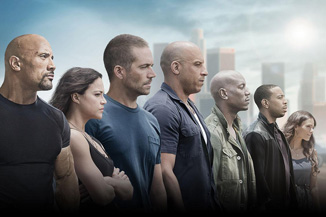|
|
Top Film Industry Stories of 2015
|

|
New at BOP: Share & Save
![]() Tweet
Tweet
![]() Print this column
Print this column
Women behind the camera – or the lack of them, and the lack of good opportunities for them – also came under scrutiny. Ava DuVernay tells a story of how her independent film was well-received at Sundance, and she signed to direct Selma – but had the wind taken out of her sails when speaking with a colleague who also had a Sundance hit and had been given the next Jurassic Park movie. Obviously, directing Selma was a great opportunity, but there’s an obvious question about whether these opportunities are equal. This is just one story, but the federal Equal Employment Opportunity Commission is currently investigating the under-employment of female directors in the film and television industry.
Even choices in film merchandising came under criticism, with Disney choosing to release action figures for every Avengers character except Black Widow. Disney's merchandising team obviously didn't learn much from the experience, given the lack of Rey toys in stores for Christmas, even though she was the movie's protagonist. Black Widow came in for more controversy after Joss Whedon promised an exciting story-line for the character in Avengers: Age of Ultron, only for the movie to reveal she had been sterilized, and Jeremy Renner had to apologize for calling the character "a slut," before doing it again.
In cases where movies did offer better storylines for women, there was also pushback – the leading example being Mad Max: Fury Road, with its anti-patriarchy theme and the prominent role given to Charlize Theron’s character Imperator Furiosa at the expense of Max. In early 2016, the line between men's rights activists and publicity-seekers became incredibly thin when a group declared victory over Star Wars: The Force Awakens.
|
Advertisement |
These issues are not black and white. “Pity the poor underpaid actresses” and “Actors bring in more box office” are common refrains. Anne Hathaway, having benefited from the system when she was a younger actress, made the point that she cannot immediately turn around and complain that the system is unfair. Jennifer Lawrence noted that “an element of wanting to be liked” impacted her decision not to negotiate harder for her paycheck. Change is not going to happen overnight, but actresses talking openly about their Hollywood experiences is going to help drive it forward.
Equality of opportunity was also of concern to non-white actors as movies such as Aloha and Pan were accused of white-washing through their casting choices of Emma Stone as the Hawaiian/Chinese/Swedish Alison Ng and Rooney Mara as the Native American princess Tiger Lily in Pan. Even The Martian, which featured one of the more diverse casts in 2015 Hollywood, was challenged for casting a white actress in a role that was Korean-American in the original novel. These issues are not going away in 2016, with Doctor Strange’s choice of Tilda Swinton to play The Ancient One – depicted as an elderly Tibetan man in the comics, or Scarlet Johansson playing the lead in the film version of Ghost in the Shell.
The issue of non-white actors taking on traditionally white roles also cropped up, most notably with the suggestion that Idris Elba could possibly play James Bond, and whether the core James Bond audience would still be able to relate to the character. (Michael B. Jordan playing Johnny Storm was so 2014!)
[ View other BOP Lists ] [ Email this column ]

|
|
|

|
Friday, April 26, 2024
© 2024 Box Office Prophets, a division of One Of Us, Inc.

